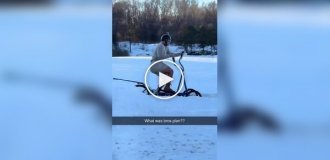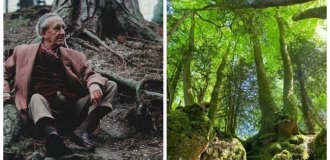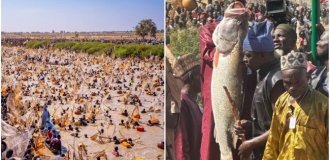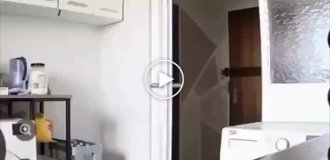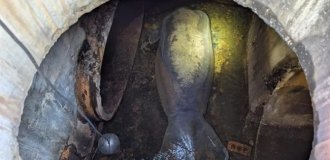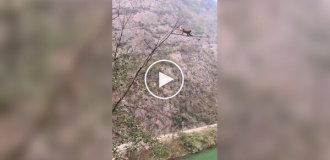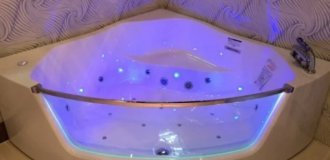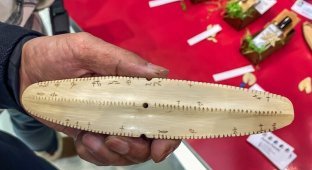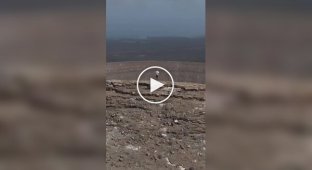“I won’t see the sun until January”: life in Lapland (6 photos)
“I try to sleep as much as possible,” shares Petri Kokkonen. “This is our secret in winter.” The 32-year-old Finn lives in the Väsätri region of Lapland, above the Arctic Circle. 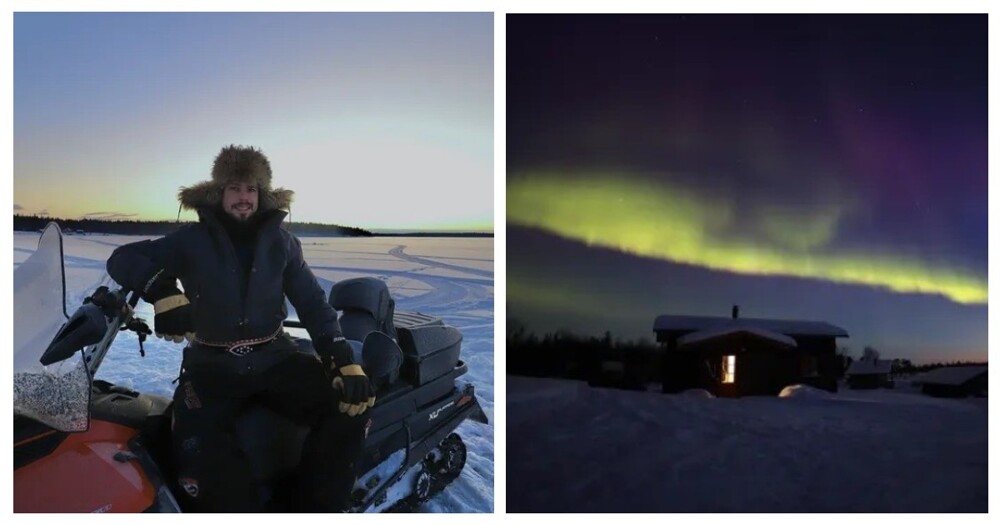
Vyatri is a protected area, home to large populations of wild animals, including deer and bears, and the northern lights dance in the sky almost every night.
Starting in October, the region is completely covered in snow, temperatures can remain at -20 °C for many months, and the sun does not appear at all.
At the end of November, Vyatari plunges into the darkness of the polar night. The sun will appear again only on January 14, and then only for 18 minutes.
For some, the thought of life without a single ray of sunshine is unbearable, but Petri consciously exchanged city life in Rovaniemi for wild nature. 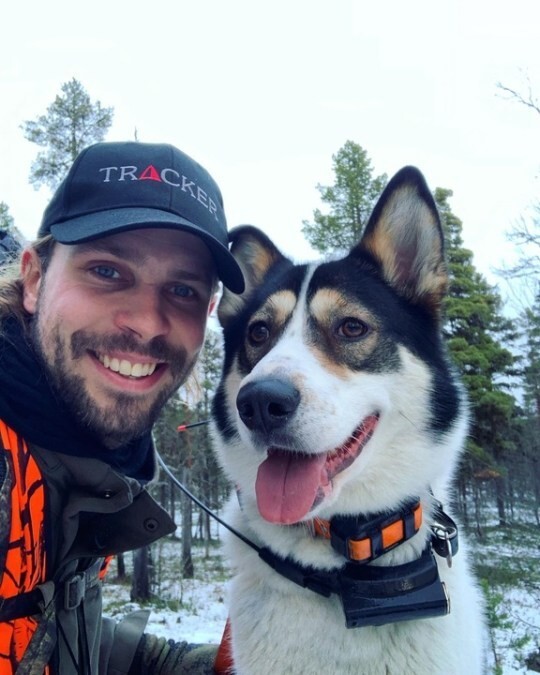
He had always been fascinated by the forests and lakes of Lapland, so he quit his job and decided to become a tour guide.
He now lives in a log house with his dogs Ellie and Elsa. He has no electricity, he takes water from the lake and gets his own food. The nearest settlement, Nellim, is 22 km away. This is a difficult way of life, and now that the polar night is coming, it will become even harder, but Petrie does not agree with this. 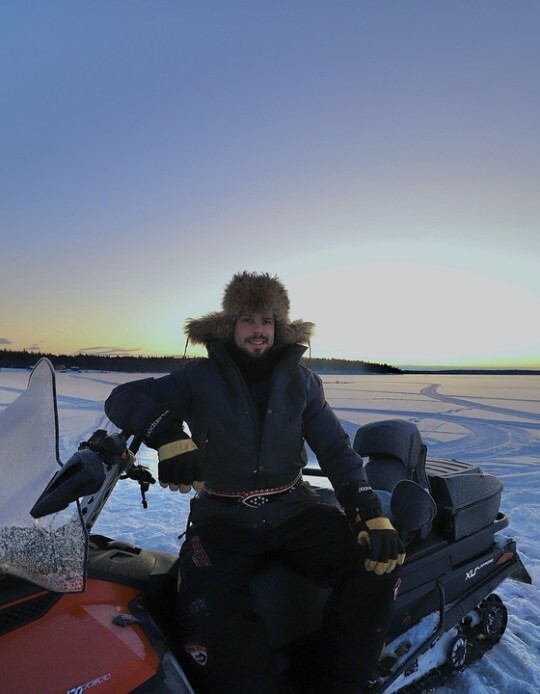
“It’s so beautiful here at this time of year,” he says. “Frosty mornings and the silence of the wild, hunting with my dogs, the northern lights and millions of stars are just some of the best parts of this time of year. Nights with temperatures of -20°C - the best: you can hear Lake Inari freezing over.”
When the man told his family that he was going to Lapland, he was supported. Love of nature is a family trait among them.
"My father told me that I was making his dream come true." 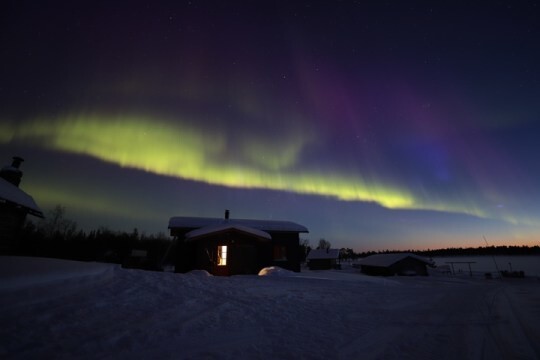
But you need to be prepared for constant darkness and frost.
“I have a lot to take care of,” says the Finn. “Before the ground freezes, I have to harvest potatoes and onions, as well as prepare firewood. I need to get the boat out of the water and, of course, put away the garden furniture for storage! "It's not frozen in the kitchen and sauna, every morning I have to heat the rooms. I pay special attention to clothes - I make sure to wear many layers, I always take spare things with me."
Considering that Petrie lives without electricity, he has to be careful. Solar panels provide energy from February to October, which is then stored for the winter. But he has to be economical.
“I use my phone to keep in touch with friends and family, work, weather forecasts, but most importantly, safety. I save battery life as much as possible so I can call for help if something happens.” 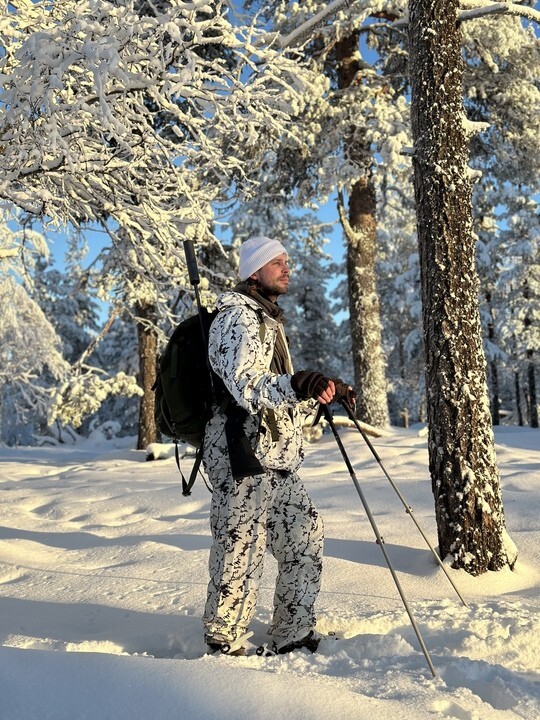
“The body itself determines the change of seasons,” says Kokkonen. “In the first dark nights, I need to sleep more. In the morning it is difficult to wake up. The body seems heavier and colder. And I begin to get tired towards the evening. There are days when I feel like I can go to bed as early as four o'clock in the afternoon."
This phenomenon is called "polar stress syndrome" and is common among those who live in the Arctic Circle.
Some residents prefer to use ultraviolet lamps or dietary supplements to combat fatigue, but Petrie avoids it by being in nature.
“I spend my days outdoors and in the evening I go to the sauna.” 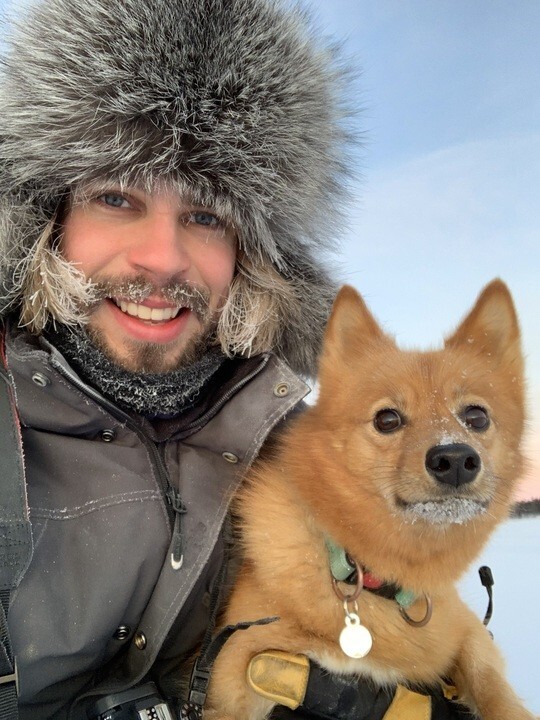
The man does not forget about work, and during the holiday season there is plenty of it. After all, Christmas is big business in Lapland.
"Here in Lapland, many people work in the tourism industry during the winter months. From December to February you can earn a year's salary."
He also added that the polar day (when the sun does not set below the horizon), observed from mid-May to the end of July, helps him survive the dark days. “You’ll be surprised how much strength a nightless summer gives!” says Petri. “I believe this energy lasts until December.”
In winter, local residents often gather and spend evenings together.
"If your snowmobile's battery dies, you immediately know you have friends everywhere ready to help. It's normal and common."
"With the arrival of spring, I feel more energetic and fresh in the morningam,” admits Kokkonen. “When the sun appears again in January, it somehow immediately gives strength and happiness.”
